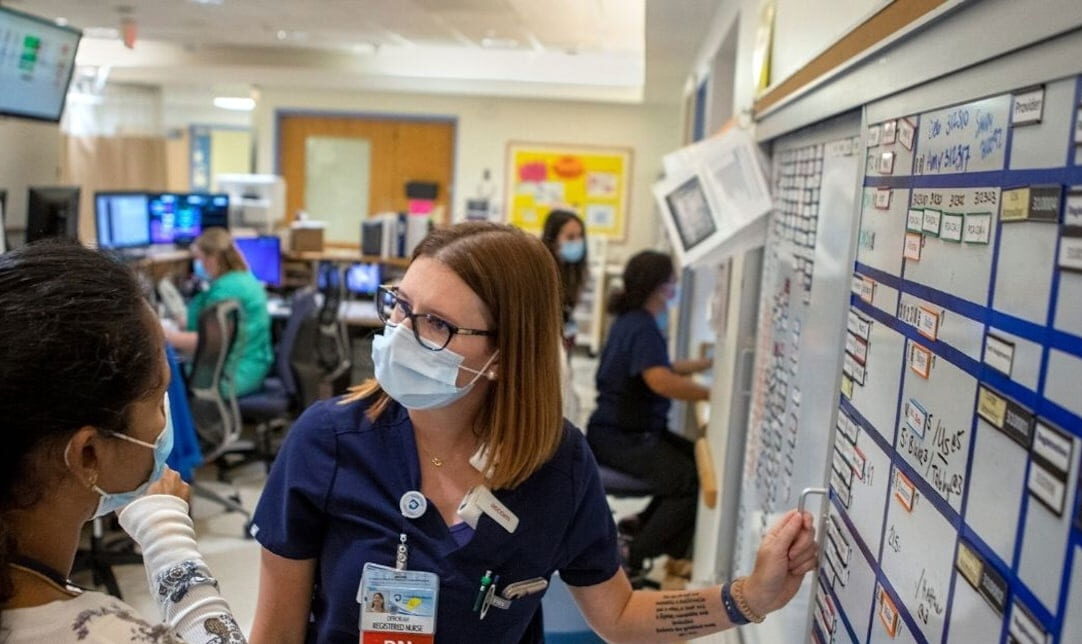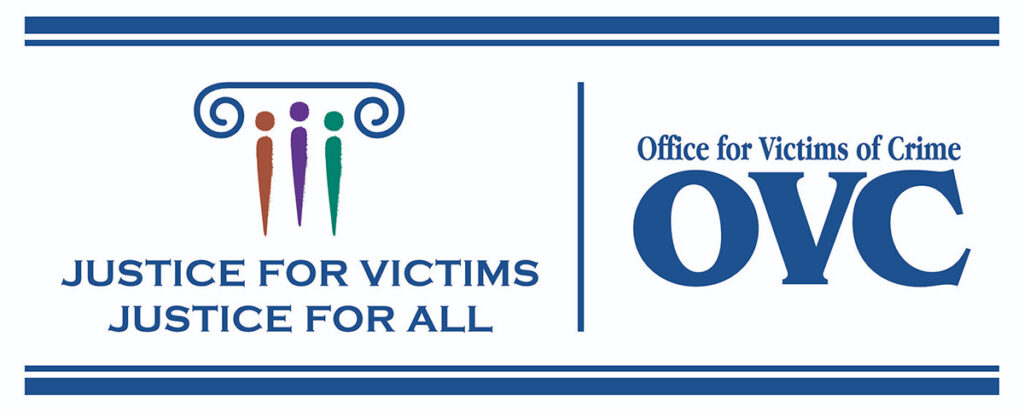The research that supports and informs SAFE-T System is conducted by the SAFE-T Center of The Pennsylvania State University. The Sexual Assault Forensic Examination Telehealth Center was launched with support from the Department of Justice Office for Victims of Crime as a solution to enhance access to high-quality sexual assault care in underserved communities. SAFE-T aims to decrease disparities in the quality of forensic SA care by providing expert, live, interactive mentoring, quality assurance, and evidence-based training to less experienced nurses via telehealth technology.
The full report to the Department of Justice is available: SAFE-T System Program Evaluation.

The Problem
Disparities in Quality Sexual Assault Care
One in five women experience completed or attempted rape and nearly 25% of men experience some form of sexual violence in their lifetime,1 yet many hospitals are not equipped to provide expert sexual assault trauma care. 27.5% of rural Pennsylvania hospitals do not have any nurses on staff with SANE training.2 That means survivors of sexual assault who seek medical exams may receive deficient care, including:
- Being examined by a provider with little or no sexual assault experience
- Being transfer to another hospital
- Leaving with no exam performed
- High potential for retraumatization due to lack of trauma-informed care
- Low-quality photo-documentation with images that may be compromised or lost
The long-term effects of low-quality sexual assault care impact judicial outcomes as well as the overall health of the survivor. Sexual trauma has a substantial impact on short- and long-term health, including mental health issues and chronic disease.3-6 Survivors who pursue legal action may also suffer negative impacts from poorly collected evidence and lack of expert testimony for court proceedings.
Pennsylvania state law requires hospitals to provide sexual assault care in every Emergency Room, but a lack of oversight on the quality and content of that care remains.
Bridging the Gap in Sexual Assault Care
The inequities that exist in the quality of sexual assault care are staggering. Even when promising solutions exist, ready adoption is slow and clear funding sources do not exist. These disparities in access and quality of care must be addressed. The SAFE-T telehealth model helps solve the concerns of local SANE availability by increasing the workforce and overcoming geographical barriers.7
Comprehensive hubs of expertise can increase equitable access to quality sexual assault care. The successful implementation of SAFE-T System in eight diverse communities demonstrates its effectiveness and value to community partners. This telehealth model provided quality SANE-led care to underserved areas where it previously did not exist. It also received high ratings of care by survivors of sexual assault, maintained high SANE retention rates, and saw substantial growth in the SANE-trained workforce in Pennsylvania.
The Solution
Sustaining Solutions for Better Care
SAFE-T Center research supports the comprehensive telehealth model as a successful way to address the disparities that exist in the quality of sexual assault care. Ongoing financial support for expert hubs like SAFE-T System will require diverse sources working together in every community.
Grant Funding
New telehealth programs should be established and grown through grant funding. Consistent evaluation of expert hubs will allow data to drive the adoption of effective solutions.
Private Business Models
Sustainable business plans can be developed in partnership with hospital leadership to highlight the value of telehealth programs and the potential impact for the surrounding community.
Public Policy and Legislation
Policy and legislative initiatives are needed to establish minimum standards of sexual assault care and ensure that solutions are adopted when available. Policies must implement incentives and support to ensure hospitals without comprehensive SANE-led care can provide expertise through telehealth programs. Current, active partnerships with key governmental stakeholders, such as PA Senator Elder Vogel Jr., are vital to ensuring SAFE-T sustainability beyond grant funding.
Contact us to discuss one or more of these options for supporting our research.
Research
- Miyamoto, S., Shipe, S., Delwiche, J., Richardson, C., Veerhusen, K., & Bittner, C. (2024). Meeting complex needs of sexually assaulted incarcerated individuals: Impact of expert Sexual Assault Nurse Examiner care via telehealth. Journal of Correctional Health Care, (). https://doi.org/10.1089/jchc.23.03.0015 Read More >
- Miyamoto, S., Bittner, C., Delwiche, J., & Ganguli, A. (2023). A strengths and needs assessment of campus sexual assault response. Journal of Forensic Nursing, ():10.1097/ JFN.0000000000000452, November 6, 2023. | DOI: 10.1097/JFN.0000000000000452 Read More >
- Pennsylvania Chapter, American Academy of Pediatrics (2023). Keystone State Child Abuse Medical Forum Strategic Plan Read More >
- Miyamoto, S., Wright, E.N., Thiede, E., Perkins, D.F., Bittner, C. & Dorn, L. (2023). Multidisciplinary perspectives on the implementation of a comprehensive sexual assault telehealth program in rural communities: A qualitative study. Violence Against Women, 0(0). https://doi.org/10.1177/10778012231159413 Read More >
- Miyamoto, S. & Downing, N.R. (2023). Leveraging telehealth to address Sexual Assault Nurse Examiner access disparities in rural communities. Journal of Forensic Nursing, 0(0). https://doi.org/10.1097/JFN.0000000000000431 Read More >
- Wright, E. N., Miyamoto, S., & Anderson, J. (2023). Having one person tell me I didn’t do the wrong thing: The impact of support on the post-sexual assault exam experience. Violence Against Women, 0(0). https://doi.org/10.1177/10778012231156153 Read More >
- Miyamoto, S., Thiede, E., Richardson, C., Wright, E.N. & Bittner, C. (2022). Pathway to Healing and Recovery: Alleviation of Survivor Worries in Sexual Assault Nurse Examiner-Led Sexual Assault Telehealth Examinations. Journal of Emergency Nursing, 48(6), 709-718. https://doi.org/10.1016/j.jen.2022.06.005 Read More >
- Wright, E. N.*, Miyamoto, S., & Richardson, C. (2021). The impact of covid-19 restrictions on victims advocacy agency utilization across Pennsylvania. Journal of Family Violence. https://doi.org/10.1007/s10896-021-00307-z Read More >
- Miyamoto, S., Thiede, E.*, Wright, E. N.*, Berish, D., Perkins, D. F., Bittner, C., Dorn, L., & Scanlon, D. (2021). The implementation of the sexual assault forensic examination telehealth center: A program evaluation. Journal of Forensic Nursing, 17(3), E24–E33. https://doi.org/10.1097/jfn.0000000000000337 Read More >
- Thiede, E.*, & Miyamoto, S. (2020). Rural availability of sexual assault nurse examiners (SANEs). The Journal of Rural Health, 37(1), 81–91. https://doi.org/10.1111/jrh.12544 Read More >
- Miyamoto, S., Thiede, E.*, Dorn, L., Perkins, D. F., Bittner, C., & Scanlon, D. (2020). The Sexual Assault Forensic Examination Telehealth (SAFE-T) Center: A comprehensive, nurse‐led telehealth model to address disparities in sexual assault care. The Journal of Rural Health, 37(1), 92–102. https://doi.org/10.1111/jrh.12474 Read More >
Funders
SAFE-T research and telehealth service provision is made possible by contributions from our funders. Research contents are solely the work of its authors and do not necessarily represent the official views or endorsements by these funding organizations.






Want to partner with us?
We’re looking for new partners!
Partnership opportunities are available for a select number of hospital sites. Sign up for our webinar to learn about opportunities to work with us.



